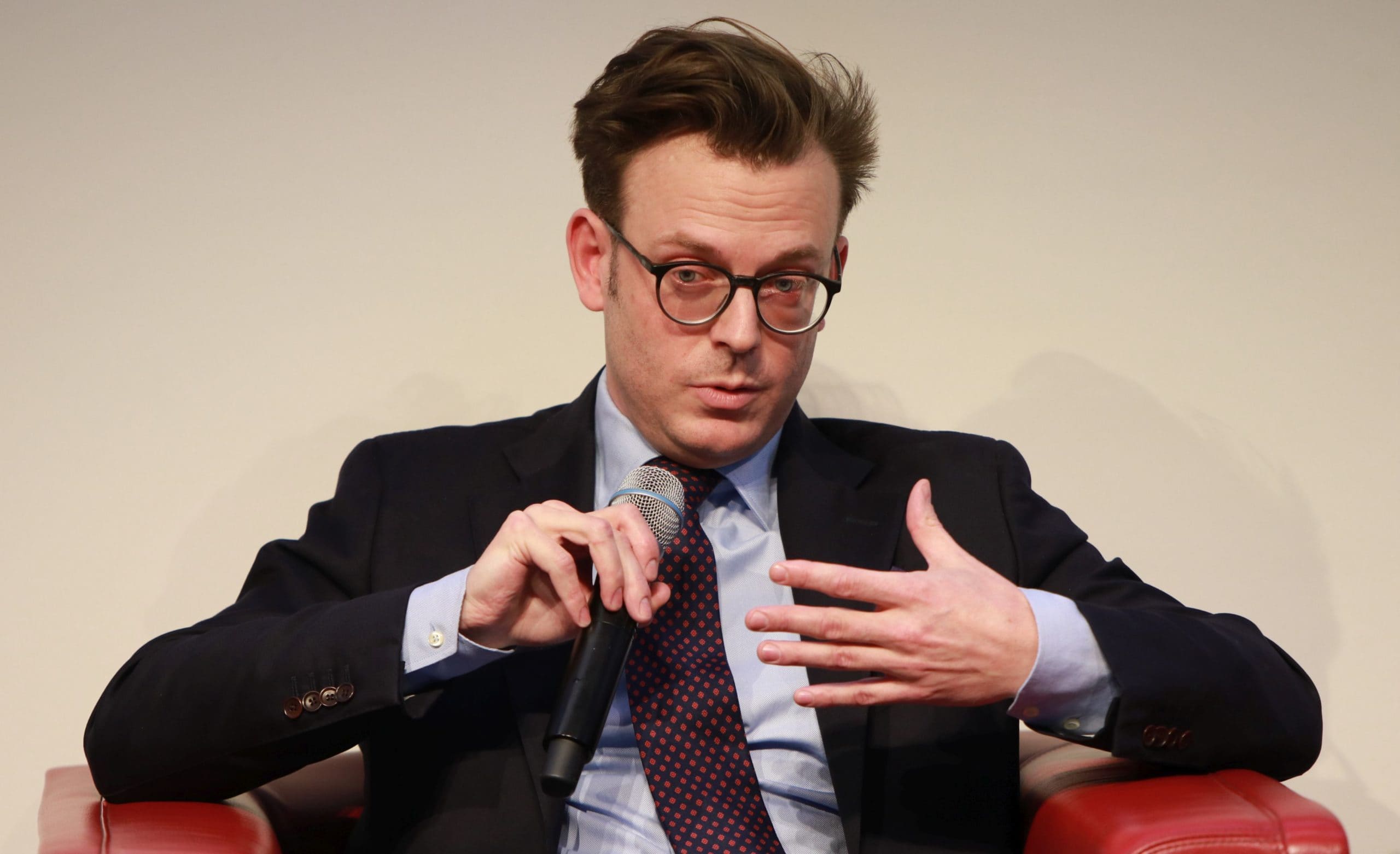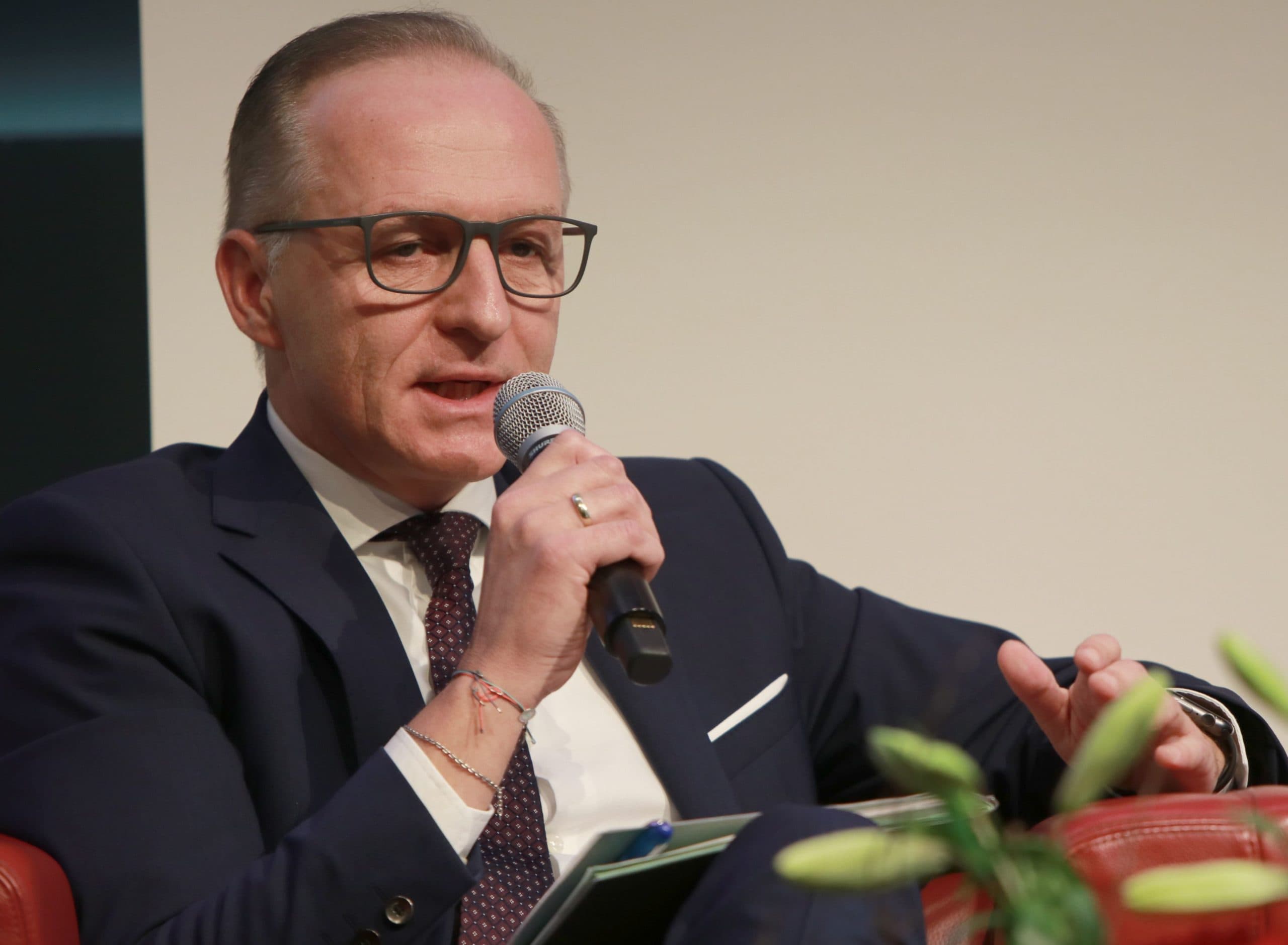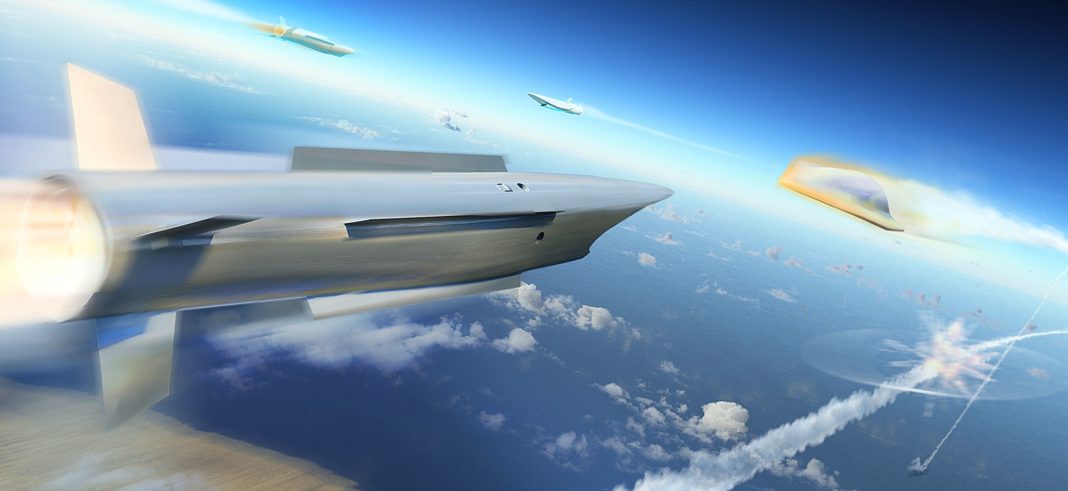On January 27, the BMLV and Defense Minister Klaudia Tanner hosted the presentation of the Risk Image 2023 at the Raiffeisen Forum on Vienna’s Danube Canal. In addition to “host” Major General Erwin Hamesedea, the event was also attended by all military spokespersons, executives from industry and civilian research institutions, as well as Austria’s top military leadership, representatives of foreign embassies (including Salome Meyer, the new ambassador of Switzerland) and the international military attaché corps.
In general, the BMLV assesses the “shock waves” of the Ukraine war and a currently unforeseeable escalation of the war as the greatest threat to Austria and Europe. This threat is directly related: An increase in migration, Russia’s further confrontation with the EU, a worsening of the energy crisis as well as disruptions to supply chains and stagflation.
———–
TIP: The 262-page publication Risikobild 2023 can be downloaded at Bundesheer – Scientific publications – Risk picture 2023 can be downloaded.
———–
Three times more risk factors
In 2018, the Ministry of Defense’s annual security policy forecast at the time still listed 25 risk factors. Currently, there are already 72 – and there is no improvement in sight, according to Defense Minister Klaudia Tanner. “There is a war in Europe and even neutral Austria, as part of the European Union, cannot escape it.” The subtitle of the risk picture was therefore deliberately chosen as “War for Europe” instead of “War in Europe”.

During the event, the risks for Europe and Austria for 2023 were discussed and key challenges were debated with renowned experts on the podium. And there was no shortage of reminders or warnings in this regard. According to the new preview and the speakers and participants in the panel discussion, Austria lacks the tools to recognize crises at an early stage, assess risks and develop options for action outside of, or even against, the politics of the day. What is obvious to the experts – i.e. the classic military threat and its accompanying actions, for example on the internet and in the targeted disruption of economic processes – is still often suppressed, ideologically trivialized or simply overlooked by the general public and the media.

Defense Minister Klaudia Tanner opened the event with the following words: “The war in and around Europe makes it clear that a well-positioned national defense is of existential importance for a neutral state. In addition to hybrid threats, conventional warfare has now clearly gained in importance again. There is a need for a return to the military protection of Austrian sovereignty against conventionally acting forces. This also requires a consolidation of the robust military components. And comprehensive national defense, which has constitutional status, must regain importance as a core task for the entire state and be further developed in line with the new challenges.”
“The war in and around Europe makes it clear that a well-positioned national defence is of existential importance for a neutral state.
”
Verteidigungsministerin Klaudia Tanner
Tanner also expressly emphasized: “Firstly, it’s about Russia’s war against Ukraine. Russia’s war against Ukrainesecondly, a war against Western values and, last but not least, a war against the European economy. Russia’s hybrid attacks on European states have shown how vulnerable the systems we like to rely on are. At first glance, protecting these systems is the role of the military. We must return to the protection of Austrian sovereignty, we have a lot to do – so our Director of Construction will not be bored and neither will our Director of Armaments,” said the Minister.

Every individual is challenged
At its core, the risk picture is of course about the specific threat to Austria – after all, the publisher is the Ministry of Defense. It uses this to determine which capabilities need to be strengthened in particular. At the presentation of the report, Brigadier Peter Vorhofer, Head of the Defence Policy and International Relations Directorate, had the task of making these obvious points clear to the politicians and business leaders present: “All the megatrends that we analyze point to a deterioration in the situation. The most significant would probably be the risk of an attack on an EU country in the current Russian war – then Austria would immediately be in a situation where it would have to think about solidarity and its duty to provide assistance. Many people in Austria are still not aware that this duty of assistance exists – because the misleading neutrality narrative ‘If you don’t play ball, you can’t lose’ has become ingrained in the minds of the population. It is therefore about the willingness of each individual to contribute to the security and crisis resilience of our country. However, European civil society in particular has not yet understood that it is once again part of a conflict, even if it is not wearing a uniform.”
“It’s about the willingness of each individual to contribute to the security and crisis resilience of our country.”
Brigadier Peter Vorhofer
Air defense is gaining in importance
The report also quotes Federal Chancellor Karl Nehammer: “The threat from missiles and cruise missiles has come closer. It has turned our previous strategic actions upside down. We must ensure air defense.” Air defense is a word that has tended to be avoided in political discourse since the interceptor discussions, but is now used as a matter of course. Targeted missile attacks – but also possible incidents with untargeted and technically faulty systems against Europe (think of the flight of the Ukrainian Tu-141 drone to Zagreb in March 2022) in March 2022) could not be ruled out. According to the report, there are a large number of missiles and cruise missiles with various ranges and targets in the vicinity of Austria and Europe. The minister therefore calls for preparation for possible threats from the air: “It is an important step that we prepare ourselves.” https://www.youtube.com/watch?v=Kg3NAi3SMR4 Rasch discussed the planned air/missile defense shield of the European NATO states on Friday, the “European Sky Shield Initiative” which the BMLV is now apparently hoping will be implemented quickly. When asked when this European missile defense shield could come into force, Defense Minister Tanner replied to APA and after the presentation that there had been two technical rounds so far and that she expected further steps to be taken at the next defense ministers’ meetings, but that this would take time: “I believe it is important that we then come to an implementation. If you ask me: as quickly as possible!” However, Tanner also emphasized that participation in “Sky Shield” should not be misunderstood: “This does not mean that we will no longer have to carry out our active airspace surveillance. On the contrary: it will be important to do both. Only the joint shield with the other states will be enough to be prepared for threats.”

Assistance clause versus neutrality
The EU assistance clause is regulated in the Lisbon Reform Treatywhich came into force in December 2009. This stipulates that in the event of an armed attack on the territory of a Member State, the other Member States owe it all the assistance and support in their power. The article can also be invoked to appeal to the solidarity of non-NATO member states, as will soon probably only be the case with Austria, Ireland, Malta and Cyprus – Sweden and Finland are on the verge of joining the EU. Sweden and Finland are about to join NATO. Although this appeal does not necessarily have to be answered militarily, Defense Minister Tanner sees the communication of the mutual assistance clause as an essential task in any case. After all, there had been a failure to explain to the people what else was implied by joining the EU. It is a joint task of the BMLV, the Foreign Ministry and the Federal Chancellery to tell the country the truth: “The first step is to provide information before making the relevant decisions, which are prescribed by law.”

A perceptible and generally (bitter) quiet laugh was heard from the German defense expert Ulrike Franke from the European Council on Foreign Relations (ECFR) was audible. She sees more pressure and difficult times ahead for Austria: The issue of neutrality will come much more to the fore in the coming years, said Franke. Up to now, Austria has kept its neutrality to a minimum, but in the future it will no longer be able to avoid the debates so easily. Austria is under more pressure than Switzerland in this respect, which has to do with its EU membership. This issue will also affect Austria much more than other neutral island states such as Ireland and Malta due to its geographical location, the expert continued. The Ukraine war has shown that Europe is not in a position to act independently and sovereignly, but still needs big brother USA. Europe must become more sovereign, regardless of who is sitting in the White House in Washington. Although the idea of a European defense union was being “pushed”, the vast majority of EU countries were in NATO and Austria had to “position itself”, said Franke. https://militaeraktuell.at/deutschland-schickt-doch-leopard-2-in-die-ukraine/ Minister Tanner, on the other hand, did not currently see Austria coming under pressure because of its neutrality. Neutrality is “not such a big issue for our European colleagues because they are aware of the contribution we make as Austrians”, said Tanner. Her European counterparts know that Austria has been involved in peacekeeping operations for more than 60 years, is one of the largest troop contributors in some Western Balkan states and also makes major contributions beyond this, such as taking command of the EU training force. the assumption of command of the EU Training Mission in Mali (EUTM) in the first half of last year. Defense Minister Tanner is right about this and nobody denies Austria and the Austrian Armed Forces this. However, Ulrike Franke probably meant one or THE major conflict or war in terms of the weighting between “EU-Austrian” versus Swiss neutrality.

Significant inputs
Major General Bruno Hofbauer, Planning Director of the BMLV, said quite clearly with regard to the European armaments situation: “We are not prepared. There are no European defense plans. The plans that do exist still refer to ‘out of area’, to areas outside the EU. But this is also the case in Austria: 55,000 Austrian soldiers are in no way able to protect the entire country,” says Hofbauer. It is important to be deployed in the right place at the right time with the help of technology, but now that the country wants or needs to rearm, it is no longer able to do so to the extent necessary.
“We are not prepared. There are no European defense plans.”
Generalmajor Bruno Hofbauer

Also worth mentioning are the views of military analyst Franz Stefan Gady from the International Institute for Strategic Studies (IISS) in London and one of the many co-authors of the current risk picture: “As military personnel and analysts, we have a communication problem not only with politicians, but also with society. And even if there is no attack on an EU country, another form of escalation threatens to have repercussions for Austria: what we must not do is underestimate the nuclear risk.” This is because the published risk picture explicitly refers to a Russian “head war”, in which fears of a nuclear strike and radioactive fallout are successfully stoked throughout the EU, which may result in dwindling support for Ukraine.

Further content
Additional topics covered by the speakers included the corona pandemicuncontrolled migration and the lessons learned for Austrian crisis management, as well as the recurring topic of blackout. As in the previous year, so-called hybrid threats, in which attackers rely on a combination of different measures – from propaganda in the media and social networks to cyber attacks – were also a key topic. cyber attacks to the use of electronic means – were the focus. With regard to blackouts Gerhard Christiner, CEO of Austrian Power Grid AG specifically called for a valid plan for the energy transition in Austria. Wind farms are being built before electricity grids are in place and approval procedures are taking far too long: “If we continue to be so negligent, there is a risk that there will be a blackout at some point.”










